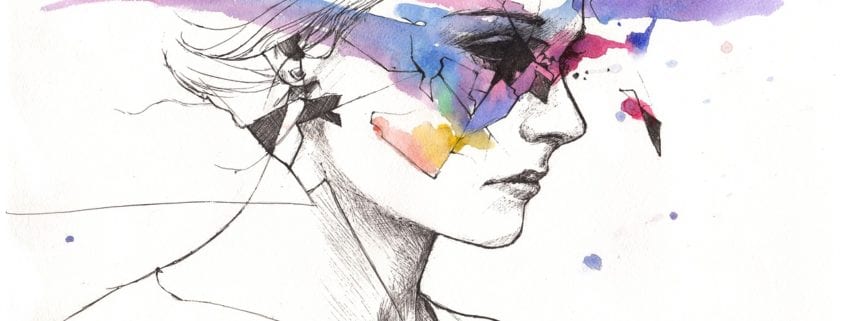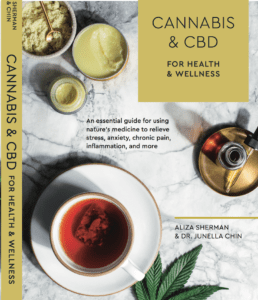Cannabis and Mental Health in Women
Cannabis for Mental Health.
From anxiety and depression to menopause and mood disorders, cannabis can provide emotional relief for women.
As women, our emotional landscape is influenced by a variety of factors, not the least of which are the hormonal impacts that start in puberty, continue through our childbearing years, and evolve during menopause. Research has also found that women experience more stress than men, particularly in the workplace — and the accompanying high levels of cortisol have lasting negative health impacts.
Enter cannabis for mental health
Turns out there’s a kernel of truth at the heart of the cartoonish “mellow stoner” stereotype. Women are turning to cannabinoids to help manage everything from hormonal emotional shifts to mood disorders and chronic anxiety — and they’re finding it safer and more effective than the pharmaceuticals they used to take.
Leah, 47, is a California horse trainer who uses cannabis to destress.
“As a person with a history of manic depression, I find that the less stress I have, the more I can control my mood/s,” she wrote in an email.
Leah said cannabis helps her to get a little distance from — and perspective on — her emotions.
“That way, the depression isn’t quite so crushing, and the manic highs aren’t nearly so frantic,” she said. “I can maintain a pretty good equilibrium.”
The cannabis plant contains a number of chemical constituents that help to affect mood, explains Dr. Elaine Burns, medical director for the Southwest Medical Marijuana Evaluation Center in Arizona.
For example, menopause causes the body to produce less anandamide, a fatty acid that makes oxytocin – the “love” hormone – more effective. As a result, “(oxytocin is) not as effective and social rewards, sexual experience, and social interactions tend to decline,” Dr. Burns wrote in an email. But THC can take the place of anandamide and offer the same oxytocin-enhancing effect.
“Thus, supplementing with THC … leads to an improvement in these areas,” she said.
Stacie is a 50-year-old, mom, wife, and self-proclaimed Type A personality with a successful full-time career. She said she was looking for an “overall sense of wellbeing.”
“Anxiety had taken over my life. Depression had been lingering in the background since I was a young teen,” Leah recounted. “For years, I had been taking depression and/or anxiety medication. My situation worsened to panic attacks, days off of work, anxiety induced sleeplessness, etc. Something had to change.”
Stacie tried microdosing, taking smaller amounts of cannabis regularly throughout of the day to maintain a more balanced mood and eliminate her anxiety. Microdosing is individual to each person. The key is to feel better, get the benefits of the cannabis plant for overall wellness, but still be able to function with the “out of it” or “high” feeling. One woman’s “small dose” may be too much for another woman with less tolerance. Stacie’s path to microdosing with cannabis was not a long one because it worked for her.
“I microdose with edibles. Smoking and vaping are not my thing,” said Stacie who explainined that the edibles she is able to obtain in her state where cannabis is legal come in 5mg servings. “I consume depending on the strain in the edible – about 1.66mg to 2.5mg once or twice a day. I have a high stress and must be high functioning in my job so I cannot be stoned.”
Stacie takes her dose of cannabis medicine at 7:00am so by the time she arrives at work, she has reduced her anxiety and her stress fades into the background.
“What I was looking for was a calmness an alert calmness. I have found that in cannabis-infused edibles.”

Enter CBD for mental health
For patients who don’t want to consume THC, CBD can be a helpful alternative because it offers relief without a high, according to Dr. Junella Chin.
CBD, short for cannabidiol, is a compound or cannabinoid in cannabis considered to be the non-psychoactive part of the plant that has anti-inflammatory, anti-anxiety and anti-spasmodic effects on the human body and brain.
Dr. Chin is an osteopath with clinics in New York and California who has been integrating medical cannabis with treatments for children and families since 2001. She’s seen benefits in treating anxiety disorders with cannabis and has used it for patients trying to wean off anti-anxiety benzodiazepines like Xanax.
“Over the last decade, my patients have reported medical cannabis working extremely well with ‘taking the edge off’ and ‘turning the volume down’ on their anxiety,” wrote Dr. Chin, who recently presented a grand rounds lecture that included the pharmokinetics of “benzos” compared to CBD. “It eases their anxiety in a way that allows them to function. They find that their racing thoughts and continuous ‘fight or flight’ response is no longer there. They simply feel more comfortable in their own skin again.”
CBD mediates a neurotransmitter called GABA (gamma-aminobutyric acid), a brain chemical that sends messages to the neurons to stop firing.
“GABA tells the body it’s time to power down,” Dr. Chin explained.
CBD is a GABA uptake inhibitor, meaning that it creates a surplus of GABA in the brain. The result: less anxiety, calming of the nervous system, help with sleep and relaxation.
Not only can CBD outperform anti-anxiety medications, but because it works differently, it doesn’t share some of the risks that come with benzo use, according to Dr. Burns. An overdose of benzos can cause fatal respiratory depression, she said, but cannabis affects a different receptor that doesn’t present the same risk.
“CBD can be as effective as benzos and definitely safer,” she wrote.
For Leah, who has attempted unsuccessfully to manage her symptoms with pharmaceuticals, cannabis – in the form of a nice green bud – has been critical to her treatment. Her physicians have been sympathetic and supportive – even when she lived in Montana, where getting a medical marijuana card was a challenge.
In the past, Leah said, she tried medications like trazodone and amitriptyline. They made her unable to retain any control of her emotions.
“But after smoking a nice joint out on the porch, I find I can go on with my day and be both productive and a person that other people want to be around,” she said.











It is a known fact that Cannabis has been used as medicine treating some medical conditions. However, people tend to abuse it that it becomes damaging to our body. So, if you will opt to use it for the purpose of relaxation and treating other health-related conditions, you should take it responsibly and moderately.